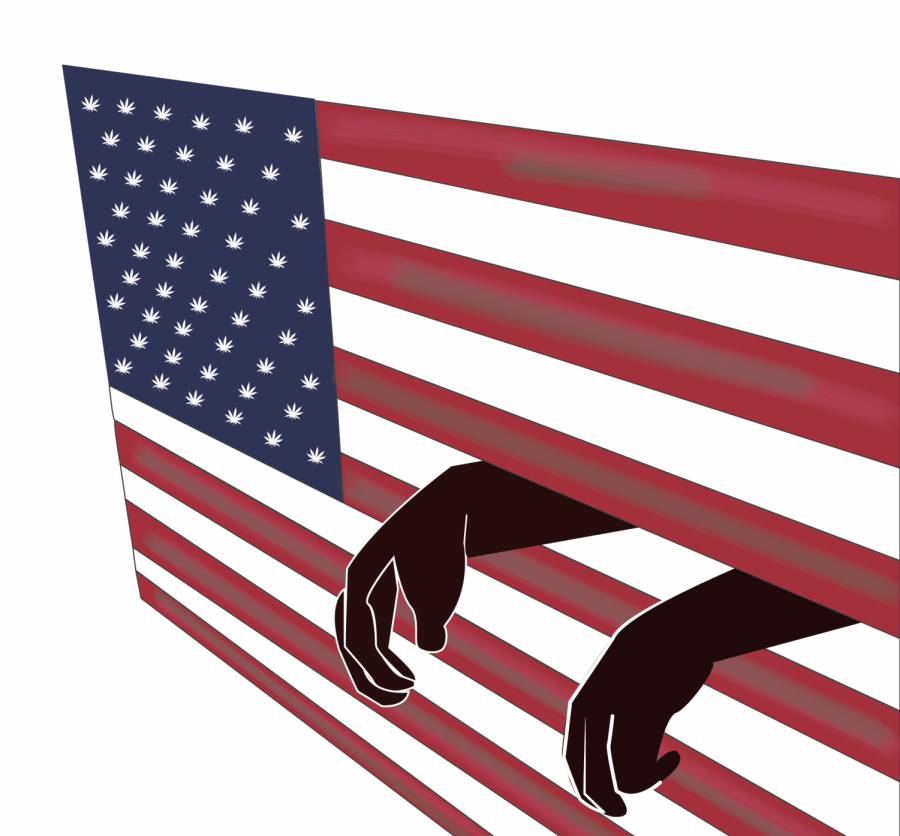Relief for the incarcerated should go alongside legalization
Jan 16, 2018
“Puff, puff, pass that law” fellow columnist, Jamie Linton, stated in her September 2017 column regarding medical marijuana on campus.
As of this year, 29 states have legalized marijuana for medical purposes. During election season in 2016, students around campus dressed as Cannabis indica to promote the Illinois vote toward legalization. Some states have taken steps to decriminalize possession of marijuana, meaning possession up to a certain amount would not be subject to prosecution.
An influx of obscure and strange marijuana activities has hit popular culture since its legalization. Entrepreneurial endeavors such as cannabis-themed bike tours, consulting firms and even florists have been all the rage.
While much of the fuss surrounding legalization of marijuana is about whether or not it is beneficial, the general public, both advocates and proponents, have forgotten about a major portion of those most affected by marijuana: the incarcerated.
Seven million people were arrested between 2001 to 2010 for having marijuana according to the American Civil Liberties Union, Marijuana-related laws cost about $3.6 billion to enforce every year.
Get The Daily Illini in your inbox!
Life For Pot keeps record of those who received unreasonably harsh sentencing for possession-related crimes. Some of these offenders are sentenced to life in prison or to as much as 80 years in jail for first-time or minimal offenses.
Most of these “creative” business endeavors and playful aspirations come from/are only amusing to a white and statistically less affected demographic. On average, blacks are about four times more likely to be arrested for marijuana-related crimes than whites, while marijuana use is about the same between the two groups, according to the National Household Survey on Drug Abuse and Health.
While marijuana in white hands has become profitable and beneficial, the very same “commodity” has been historically criminalized on black and Latinx streets. Although large racial disparities of drug-related crimes is nothing new, being able to create a business off a traditionally crippling product with zero attribution to those detrimentally affected by it is a new level of a primarily white privilege.
The United States is one of the few countries in the world that does not grant “retroactive ameliorative relief.” This means when a law is passed to lighten or to end punishments for a crime, those previously convicted of that crime are not eligible for the same relief for their sentences. While an increasing population is rolling in profits from the high-demanded marijuana industry, millions of people are either still in jail or are struggling to find a job for participating in the same “business,” and nothing is being done about it.
Not only is continuing to incarcerate these non-violent offenders expensive (roughly $30,000 annually per inmate), private prison systems and corporations benefit greatly from an increase in inmates, according to the American Civil Liberties Union.
A move toward establishing retroactive ameliorative relief should be just as popular as the move toward legalization. Although there is no plan to establish relief for previously convicted offenders on a federal level, a push for this kind of legislation on a state or a local level could be attainable with enough support. Counties in Colorado and Washington planned to end marijuana-related investigations because of the legalization law change.
So while you might vote for legalization just because you wish you had a weed prom in high school, realize that pushing for repeals for possession-related cases is an important part of the process.
Isaiah is a sophomore in Media.






